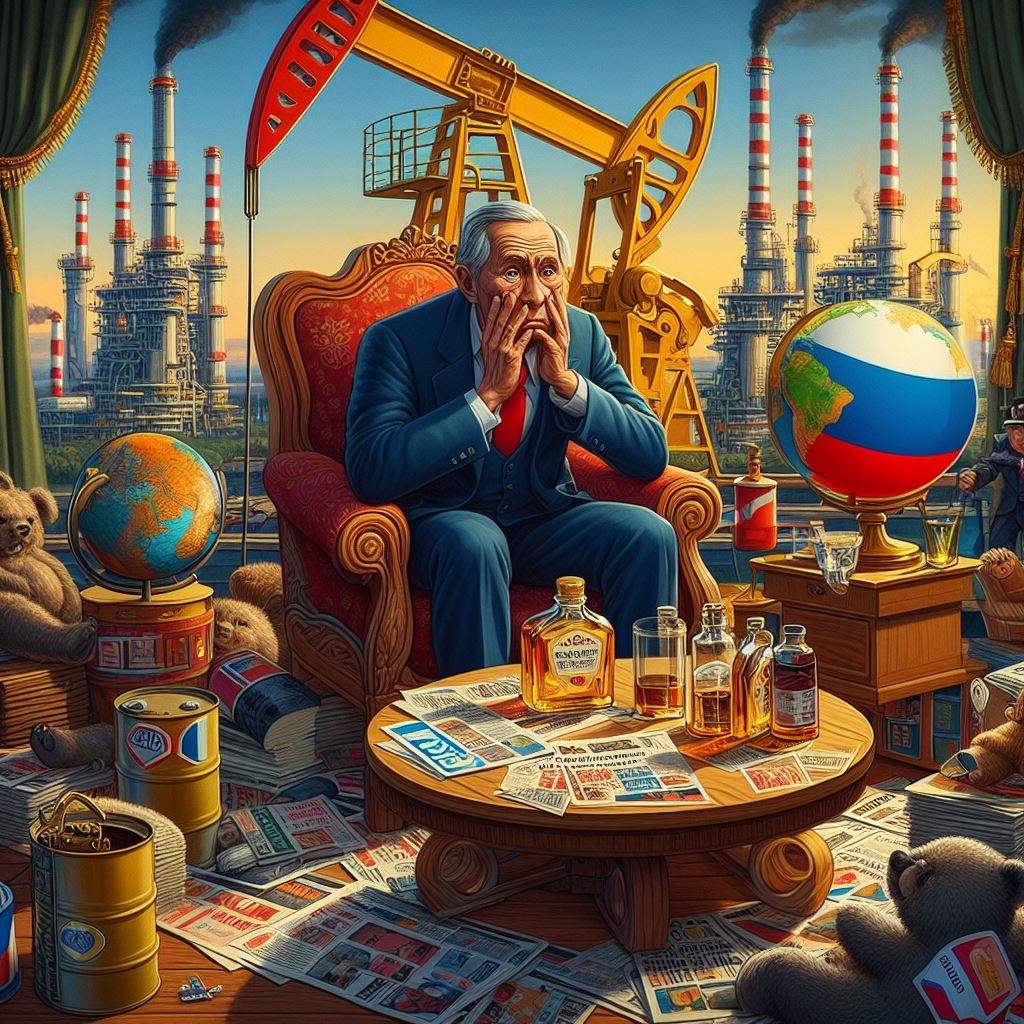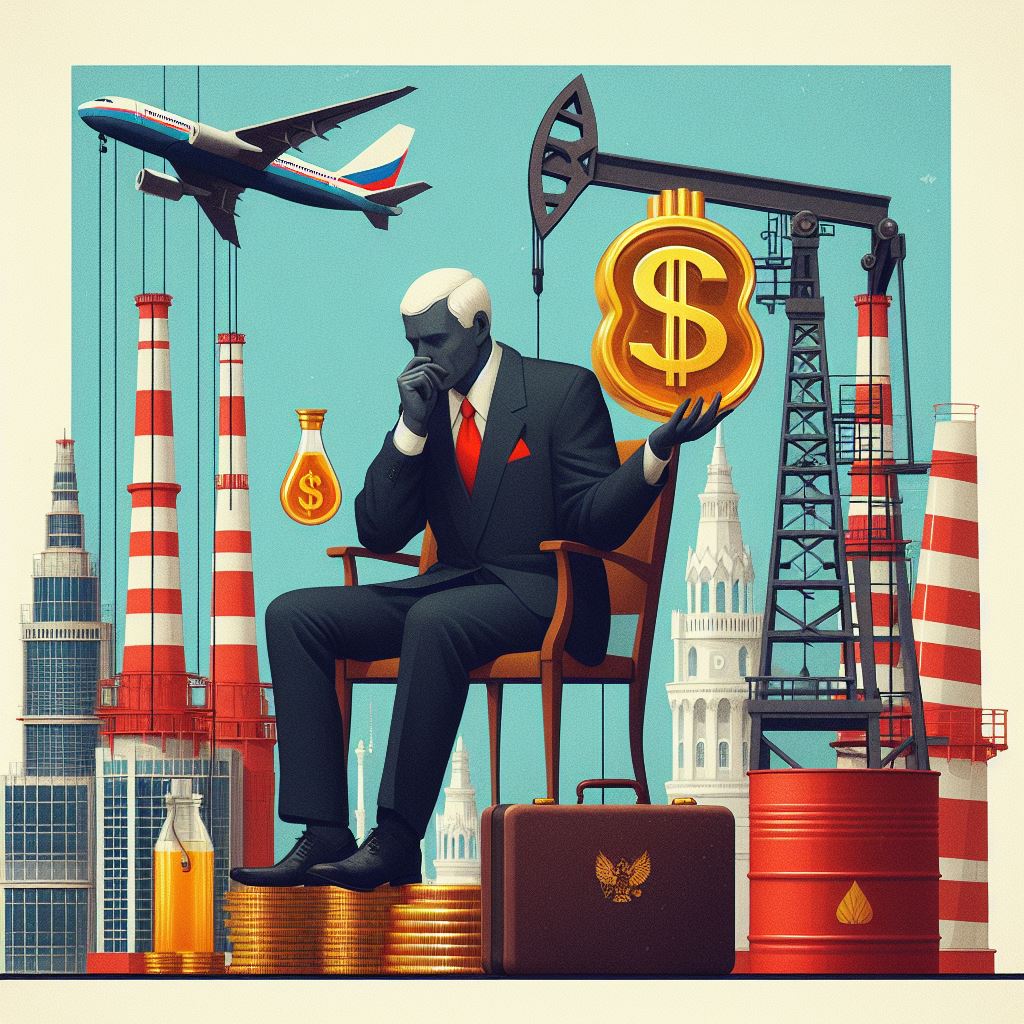全球第三大石油生產及出口國的俄羅斯,為何長期窮困?
俄羅斯,作為全球第三大石油生產及出口國,長期面臨經濟發展不佳的問題,其全國GDP還不如中國的廣東省。雖然其他石油生產國如沙烏地阿拉伯和汶萊的國民生活富裕,但俄羅斯卻逐漸陷入貧困。
每年生產量高達37億桶的俄羅斯,賺取數兆美元的石油資金,但許多地區相當落後。近年來,與烏克蘭的戰爭使當地居民原本辛苦的生活更加雪上加霜。儘管俄羅斯擁有豐富的資源,但石油分布不均,主要集中在西伯利亞和北極地區,由於惡劣的環境導致開採難度增加。相關的開採設備老舊,從蘇聯時期一直延用至今,開採效率相當低。
由於上述原因,每桶石油的開採成本超過35美元,相較於中東每桶10美元的成本,缺乏市場競爭優勢。為了扭轉這一頹勢,俄羅斯開始使用低溫載鑽機提升開採效率。
儘管俄羅斯石油產量龐大,但在國內銷售方面面臨困難,主要因為缺乏重工業製造,大多數產業屬於低附加價值和低階技術。對石油需求的主要是能源和化工企業,它們需要的是原油或輕度提煉的石油。因此,俄羅斯缺乏完整的石油精煉和加工產業,只能依賴出口。
這也導致如果美國大量開採頁岩油、實行經濟制裁或是國際石油價格波動過度,都對俄羅斯經濟產生相當大的影響。雖然俄羅斯每年收到的石油獲利驚人,但國土龐大且適合居住的地方有限。俄羅斯繼承前蘇聯留下的大筆資產,但也繼承許多債務。每次出售石油所得的一部分資金都需要用來償還外債,剩下的資金則轉向民生和軍事發展。
目前俄羅斯擁有兩艘航空母艦和世界最先進的核潛艦,但這些維護費用和軍隊開支都給該國帶來不小的壓力。由於上述原因以及嚴重的貪腐問題,這個社會主義國家缺乏預算用來照顧民眾,而在歐美國家紛紛制裁的情況下,未來的經濟發展只會更差。
Russia, as the world's third-largest oil producer and exporter, has long faced challenges in economic development, with its national GDP lagging behind China's Guangdong province. While other oil-producing nations like Saudi Arabia and Brunei enjoy prosperous living standards, Russia has gradually fallen into poverty.
With an annual production of up to 3.7 billion barrels, Russia earns trillions of dollars in oil revenue. However, many regions remain economically underdeveloped. The recent conflict with Ukraine has further exacerbated the already challenging living conditions for local residents. Despite Russia's abundance of resources, the uneven distribution of oil, mainly concentrated in Siberia and the Arctic regions, combined with harsh environmental conditions, has increased the difficulty of extraction. Outdated extraction equipment dating back to the Soviet era contributes to low efficiency.
Due to these factors, the extraction cost per barrel exceeds $35, compared to the $10 per barrel cost in the Middle East, resulting in a lack of competitive advantage in the market. In an effort to reverse this trend, Russia has started using low-temperature drilling rigs to improve extraction efficiency.
While Russia boasts significant oil production, domestic sales pose challenges due to a lack of heavy industrial manufacturing. Most industries fall into low-value-added and low-tech categories. The primary demand for oil comes from energy and chemical companies requiring crude or lightly refined oil. Consequently, Russia lacks a comprehensive oil refining and processing industry, relying heavily on exports.
This dependence becomes a vulnerability when the U.S. increases shale oil production, implements economic sanctions, or experiences excessive fluctuations in international oil prices, significantly impacting the Russian economy. Despite the staggering annual oil profits, Russia's vast landmass with limited habitable areas poses challenges. Inherited assets from the Soviet era also come with substantial debts. Funds from oil sales are used to repay external debts, with the remaining funds allocated to civilian and military development.
Currently possessing two aircraft carriers and the world's most advanced nuclear submarines, Russia faces significant financial pressure due to maintenance costs and military expenditures. Corruption issues, along with the mentioned challenges, leave this socialist country with limited budget allocation for the welfare of its citizens. In the face of ongoing sanctions from Western countries, the future economic outlook for Russia appears increasingly bleak.


照片:DALLE3
- 1
- 2
- 3
- 4
